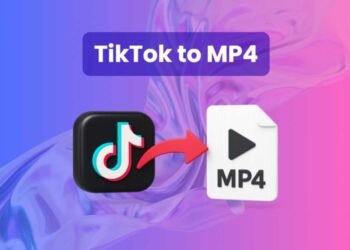From a simple process of finding candidates and setting up a single interview, the hiring journey has become more complicated and more personalized. Companies now use different types of interviews that range in approaches and initial goals.
Whether you want to hire front end developers, junior data analysts, or ML engineers, you have multiple options to check the candidates’ hard and soft skills, their values and behaviors, their experience and future plans.
Let us reveal the most common types popular among tech companies.
Examining Different Kinds of Interviews
Before choosing the right type of interview for the hiring process, you’d need to set goals. Consider all factors and decide what exactly you want to check in the candidate. You may want to see whether a candidate will have enough expertise to work on your project, or also check whether they will fit in your team and share your company’s values.
Every process has entry and closure steps. While not considered the typical interview types per se, they are vital in the whole recruiting process. The screening at the beginning helps to choose the right candidate for further interviews. The feedback session at the end allows showing the candidate their areas for improvement, maintain good relations, and promote a positive employer brand, even if a candidate will not continue their journey with you. Besides them, the most common interview types are the following:
Technical Interviews
This is the most common type of interview in the industry. It usually consists of tech tasks or cases to check a candidate’s hard skills. Usually in the form of a coding or algorithmic problem, the task is sent in the shared file or presented in a hard copy during the face-to-face interview. The technical interview may also involve technical discussions to check a candidate’s problem-solving and decision-making skills.
The advantages of this approach are immediate feedback on a candidate’s capabilities and assessment of accomplishing tasks in real time and under pressure. If the case is sent to a specialist remotely, it usually has a deadline and checks how quickly they can cope with it. However, such interviews don’t show the full potential of a professional, may be biased, and deviate from real-life coding activities.
Behavioral Interviews
In comparison to the technical or coding interviews, which focus on hard skills, behavioral interviews aim to check a candidate’s soft skills. From different kinds of interviews, this type will best assess a specialist’s behavior in the past. It will include questions like “How would you behave if…” or “Describe a situation when you…” and the likes. Many believe that the behavior in the past shapes the behavior in the future, giving a hiring manager a clue on whether a candidate will be a perfect match.
Questions in behavioral interviews are chosen in a manner to put an interviewee in various situations and scenarios. They help to assess them from the point of view of cooperation, team work, adaptability, and problem-solving, among others.
Panel Interviews
When you choose from different types of interviews, you think not only of the content, but also the format. Panel interviews relate to the form, allowing multiple individuals to interview a candidate. This type is useful to shorten the number of interview rounds and can combine technical and behavioral questions.
Panel interviews are also applicable when a candidate will have a cross-functional role and will report to different departments. They allow multiple assessments at the same time and provide a comprehensive understanding of a candidate.
Informal Interviews
This is one of the different types of interviews that doesn’t have a strict structure and is organized in a casual setting. The candidates feel as if they were having an informal conversation or a friendly discussion, while you assess their behavior, background, and experiences. Such interviews also help to define an applicant’s background and cultural fit.
Informal interviews eliminate a stressful setting, imposing a friendly atmosphere, which helps candidates to open up and contributes to their genuine responses. However, they won’t allow assessing qualifications and technical skills. Besides, the final decision may be too subjective.
STAR Format
Initially used as a structure in behavioral interviews, the STAR format has shifted to different types of interviews. It’s often used as a tip for candidates to prepare for interviews, but it’s also what the recruiters expect to hear during the interview. STAR stands for Situation, Task, Action, and Result, which help to structure experience, show measurable results and achievements. In other words, the applicant concretely describes what was the situation, which task they had, what actions they undertook to accomplish the task or solve the problem, and what was the result.
Some managers advise the applicants in advance to be ready with examples in the STAR format. This way, they can follow up quicker, they examine a candidate’s behavior in specific situations, and assess their competencies and soft skills. Besides, organizing interviews in the same format for all applicants eliminates biases and reduces subjective decisions.
Let’s Sum It up
The list of interviews is not exhausted, as they increase in number depending on the company’s needs. The most effective approach is to combine different kinds of interviews, without exceeding three rounds. Otherwise, the recruiting process becomes too long and the candidate may give up half-way.
After the screening process, the most optimal and the most widespread interviews are technical and behavioral. While the first helps to assess hard skills and competencies, the second focuses on soft skills and critical thinking. Depending on the specialist you’re looking for, you may additionally want to check their leadership potential and initiative, their problem-solving, cooperation, learning ability, adaptability, and emotional intelligence.












